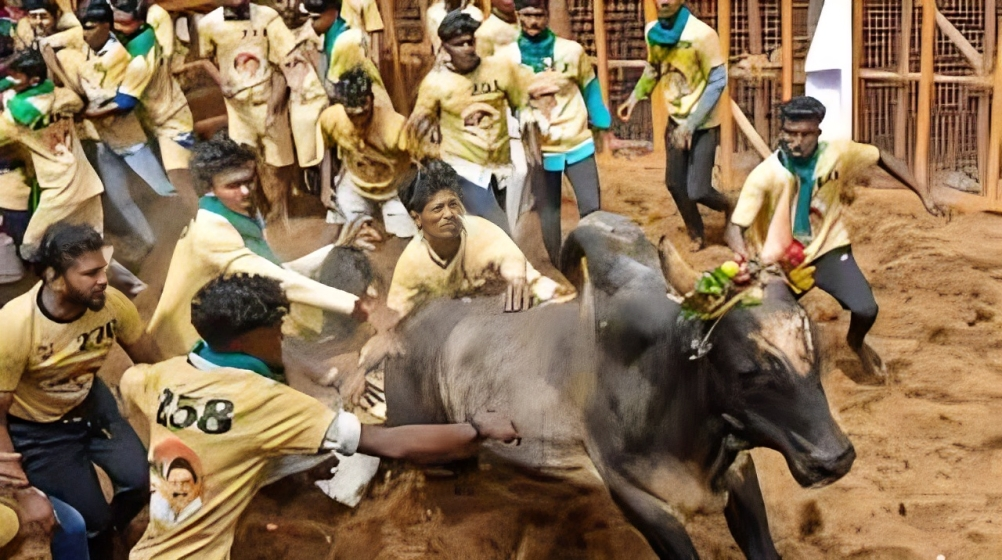INDIA: Jallikattu, a traditional bull-taming event, holds a special place in the hearts of Tamil Nadu’s people. This ancient practice is deeply intertwined with the state’s history and agricultural traditions, symbolizing courage and the bond between humans and animals. Celebrated primarily during the harvest festival of Pongal, Jallikattu showcases Tamil Nadu’s cultural vibrancy and rural roots.
The event involves participants attempting to tame a bull by holding onto its hump as it charges through the arena. Bulls are specially reared and trained for this occasion, often treated as family members by their owners. The preparation for Jallikattu is meticulous, with bulls being fed a rich diet and groomed to highlight their strength and agility. This connection underscores the respect and care shared between the farmers and their animals.
Jallikattu is more than just a spectacle; it is a symbol of pride and identity for Tamil Nadu. The event draws large crowds, with entire communities coming together to witness the thrilling competition. While it is a test of physical strength and skill for participants, the celebration is also marked by festive cheer, traditional music, and cultural performances, reflecting the essence of Pongal.
In recent years, Jallikattu has sparked debates surrounding animal welfare and safety concerns. Efforts have been made to balance tradition with modern sensibilities, ensuring the event continues without compromising ethical standards. Despite challenges, Jallikattu remains a cherished tradition, epitomizing Tamil Nadu’s enduring cultural legacy and its celebration of life, resilience, and community.



